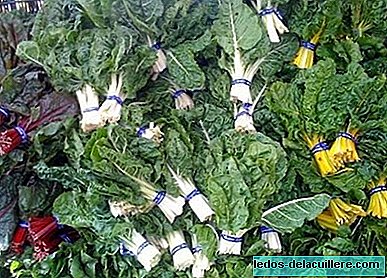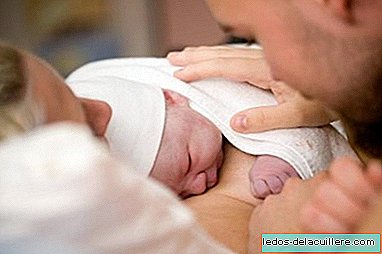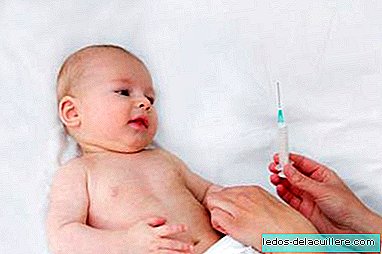
If something has continued research in health is that the recommendations that served a few years ago give way to new ones. Continuous revisions and reassessments of previous measures lead to changes.
In nutrition the same thing happens, and although it may seem somewhat confusing at first, there is no doubt that the new nutritional recommendations in the light of recent research result in everyone's health.
This is what the recommendations for consumption of vegetables with high levels of nitrates for children, a sector of population highly sensitive to the negative effects of these substances. The most risky vegetables are spinach and chard.
A few days ago we saw that the recommendations for the consumption of certain fish with high levels of mercury had been modified for pregnant women or during breastfeeding and for children. These are groups especially sensitive to the possible risks that the consumption of certain substances in excess may entail.
The Spanish Agency for Food Safety and Nutrition (AESAN) also makes the following consumption recommendations with the objective of decrease nitrate exposure in sensitive populations (babies and young children):
It is recommended, as a precaution, not to include spinach or chard in their purees before the first year of life. If these vegetables are included before the year, ensure that the spinach and / or chard content does not exceed 20% of the total puree content. We already talked to you in our Special Food about vegetables from twelve months of age.
Do not give more than one serving of spinach and / or chard a day to children between one and three years.
Do not give spinach and / or chard to children with gastrointestinal bacterial infections.
Do not keep cooked vegetables (whole or pureed) at room temperature. Store in a refrigerator if they are to be consumed on the same day; If not, freeze.

Vegetables in the spotlight according to the European Food Safety Authority
These recommendations are based on what the European Food Safety Authority had previously said. EFSA notes that nitrate levels in lettuce do not pose a risk for the children In the case of spinach the situation is different; the beet would also be among the vegetables with excess nitrates.
EFSA has studied two different exposure scenarios and has reached the following conclusions:
Infants (babies aged three to twelve months): It is unlikely that spinach consumption is a health concern, considering that these would be part of the diet as one of the ingredients in baby puree between six and twelve months. However, EFSA recognizes that there would be a risk if more than one ration of mashed potatoes with spinach per day were given (considering that spinach constitutes 50% of the content of said puree).
Children from one to 18 years: EFSA has studied three population groups of children (1-3, 4-6 and ≥7 years), in which spinach can already be consumed as a complete ration, and has determined that The greatest exposure to nitrates occurs in the one to three year segment. This group does not rule out the absence of risk in extreme situations, such as that in which a high consumption of spinach is combined with the presence of high levels of nitrates in them.
Finally, EFSA warns that improper storage of these cooked vegetables (Preparation of purees more than one day in advance and stored at room temperature) can lead to the conversion of nitrates to nitrites on-site, thus increasing the potential to cause methemoglobinemia.
In addition, children with bacterial infections of the gastrointestinal tract are more sensitive to nitrates, so the Panel of Contaminants in the food chain advised against feeding these children with spinach.
The risks of nitrates in infants and children
Recall that nitrates are found naturally in vegetables, especially in green leafy vegetables, such as spinach and lettuce. Nitrates themselves are relatively low toxic. Its toxicity is determined by its reduction to nitrites in the human body that, in high concentrations they can cause methemoglobinemia.
To produce poisoning in animals or adults, a high dose of nitrates-nitrites is needed. However, in children and especially in babies, minimum amounts would be sufficient to trigger serious disorders. Those babies and young children who are exposed to high concentrations of nitrates through the diet, may suffer from the "blue baby syndrome."
Aware of this food risk, maximum levels of nitrates in lettuce and spinach, as well as in baby foods, have been established at the community level. Chard, a food widely consumed in Spain, is also included in these limitations.
Recall that the Spanish Association of Pediatrics (AEP) recommends introducing the vegetables in puree form after six months, avoiding spinach, cabbage and beets in the first months, until the year, because they can cause methemoglobinemia because of its high nitrate content.












